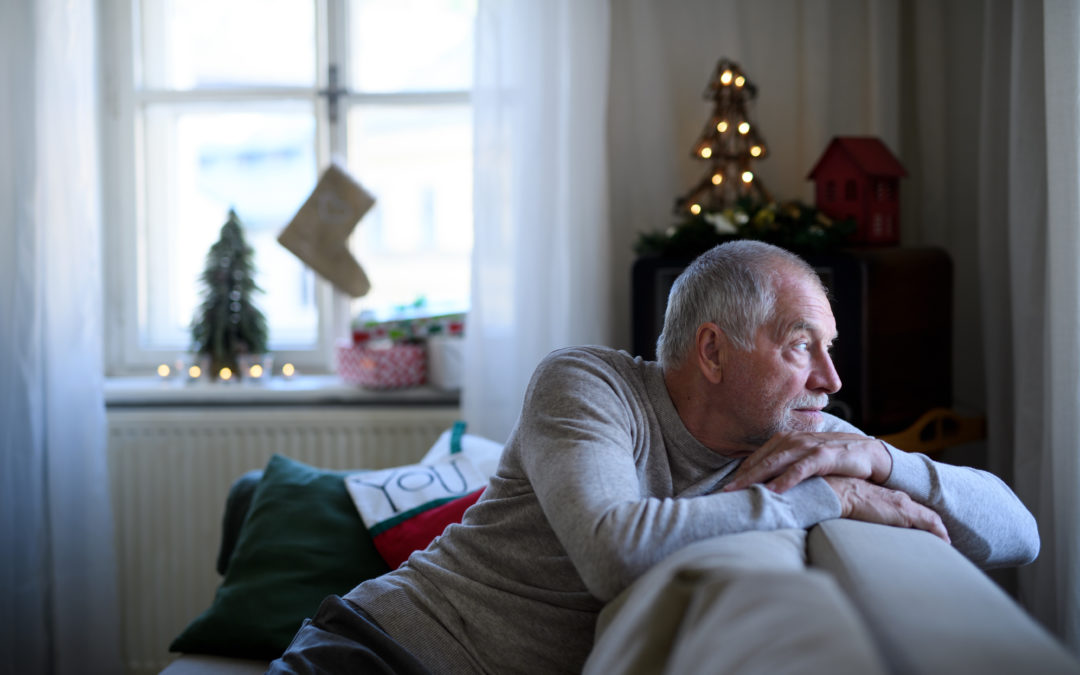Winter is just about here, which means so is the reduced daylight, adverse weather, and decreased activity that comes with it. While seasonal depression symptoms can be hard on all of us, they are especially debilitating for those with limited mobility. According to the CDC, 20 percent of adults aged 55 and older have a mental health issue unrelated to normal aging. Furthermore, 15-20 percent of seniors 65 and up experience depression.
Mission Health + Home has compiled some tips to reduce the effects of seasonal depressive symptoms in your elderly loved ones. Based in Rochester, NY, we know a thing or two about Western New York winters and the toll they can take. Contact Mission Health + Home today to learn more about how we can help reduce the strain of limited mobility this winter.
What is Seasonal Affective Disorder?
Aptly named, Seasonal Affective Disorder (or SAD) refers to the general dip in mood or depressive feelings related to the changing of the seasons. This typically occurs in the winter months, when we experience less daylight and more cold temperatures.
Some symptoms of SAD include:
- Greater fatigue or lack of energy
- Loss of interest in activities
- Sleep issues
- Weight loss or gain
- Mood swings or increased irritability
- Thoughts of hopelessness or suicide
How Does it Affect Those Aging in Place?
People of all abilities often have reduced mobility, and the winter weather can reduce their mobility even more drastically. This can lead to feelings of hopelessness, lack of motivation, sadness, and anger.
Additionally, storms and adverse conditions can prevent loved ones from traveling to visit. Lack of support and presence of friends and family can seriously impact the mental health of those aging in place.
How You Can Help Reduce Seasonal Depression Symptoms in Your Loved One
1. Increase Exposure to Light
One of the greatest factors contributing to Seasonal Affective Disorder is lack of light. With the end of daylight saving time, we experience shorter hours of sunlight. Lack of natural light means a lack of vitamin D, which is essential for healthy bone and muscle function, immune response, and brain cell activity. To combat this, have your loved one sit near a window throughout the day. Open those curtains and shades and let in as much natural light as possible. If they are able and it’s not too cold, have them sit outside or on their porch to soak up some sunlight and fresh air. Just a few minutes each day can decrease symptoms of SAD.
You can also try a light therapy lamp, which mimics the natural brightness of the sun. Sitting in front of these lamps can actually trigger chemicals in the brain that increase one’s mood.
2. Exercise Regularly
Exercise is proven to be a mood booster. Physical activity releases endorphins in the body, which trigger happy feelings that reduce stress. Of course, exercise can be extremely difficult for those with different abilities. If you need some help finding manageable physical activities, read this guide on exercising with limited mobility. You can also talk to their doctor to find out the safest methods of incorporating movement into their day.
3. Maintain a Healthy Diet
Diet has a greater impact on overall health than many people realize. If your loved one isn’t getting the nutrients their body needs, their mood could worsen. Because we lack vitamin D from sunlight in the winter, it’s extremely important to supplement it in your diet. Vitamin D can be found in fortified milk, fatty fish like salmon, tuna, and sardines, and fortified cereals and oatmeal. Try to incorporate these foods into your loved one’s diet.
4. Incorporate Mobility Solutions
If your loved one’s mobility is greatly limited, their mental health is likely suffering. The good news is there are many actions you can take to reduce the strain. Mission Health + Home offers an incredible selection of mobility solutions. From stairlifts to mobility scooters to active care beds, our services are customized to meet your loved one’s unique needs. Contact us to schedule a product evaluation to determine which option is best for you!
5. Know When to See a Doctor
If your loved one is exhibiting symptoms that are worrisome, such as a decline in health due to depressive behaviors, dramatic weight fluctuations, or suicidal thoughts, it’s time to seek outside help. Contact their doctor or caretaker and alert them of your family member’s change in behavior. They may refer them to a psychiatrist or geriatrician for more specialized care.
Mission Health + Home is Here to Help
At Mission Health + Home, we know how difficult the winter months can be on those aging in place. Seasonal Affective Disorder is real, but there are many steps you can take to prevent it. We aim to help you heal, live, and move better than you ever thought possible. Based in Rochester, we serve families across Western and Central New York. Contact us today!

